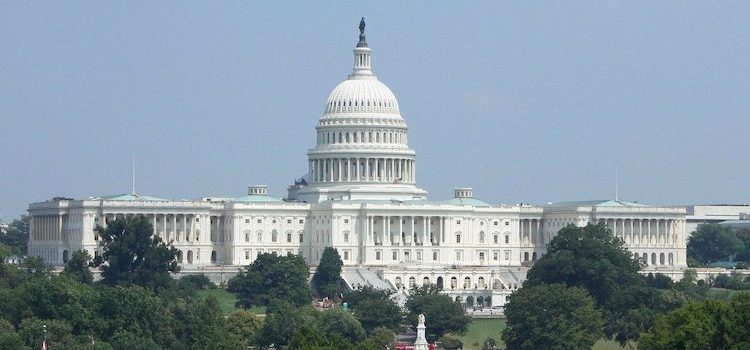

This article is an excerpt from the Shortform book guide to "The Wealth of Nations" by Adam Smith. Shortform has the world's best summaries and analyses of books you should be reading.
Like this article? Sign up for a free trial here.
What should the government spend money on? What should its priorities be and why?
In The Wealth of Nations, Adam Smith discusses what he thinks are the best ways to grow a nation’s economy. Since growth is the goal, Smith opposes most public spending. He outlines two criteria for what he considers proper government expenditures. Only four things meet these criteria.
Let’s take a look at what makes the cut and why.
Adam Smith on Government Spending
In general, Smith opposes taxation and public spending. This is because taxation takes capital out of the hands of the private investors who would naturally invest it in the most profitable industries.
Therefore, Smith recommends that governments should collect taxes and spend public money only if it’s on something that’s important for society as a whole and can’t be handled better by the free market. So, what should the government spend money on? Smith contends that only four expenditures meet his criteria: defense, justice, education, and infrastructure.
(Shortform note: Smith does not include welfare for the poor among the important functions of government spending. However, it’s important to consider the structure of welfare systems in Smith’s time. Welfare for the poor existed throughout 18th-century Britain, but as a responsibility of the church, not the state. Christian churches had cared for the poor in Europe since medieval times, but with an inconsistent, patchwork system. Queen Elizabeth I standardized church welfare systems throughout the UK with the “Poor Laws” of 1601. Smith discusses the poor laws at length in an analysis of parish residency requirements and their impact on labor markets, but he argues neither for nor against the practice of collecting and distributing welfare.)
State Expenditure #1: Defense
Every country must defend itself from foreign invasions with a standing military. Smith provides three arguments for the benefits of public investment in standing armies.
- Standing militaries in industrialized societies are highly expensive because modern warfare requires implements like cannons, ships, and artillery. Therefore, it’s difficult to imagine another funding source that could actually cover the expense and keep the nation well-defended against national security threats.
- Without a standing army, governments will have to move laborers out of their existing professions to fight for the duration of the war. This will disrupt the economy.
- Many types of work in modern economies don’t prepare workers for the profession of soldiering. Therefore, it’s better in wartime to have a core of soldiers that are already trained to fight.
(Shortform note: In his arguments for the importance of a national military, Smith is specifically responding to debates over whether countries should maintain a standing army during times of peace as well as war. Some countries opted to disband their military forces during peacetime and reconstitute them should war break out. Standing armies were controversial in the 18th century because of their enormous cost and the tendency of soldiers to abuse their power and authority over the population. Smith contends that the practice of reconstituting the army in wartime is sufficient for less economically developed societies, but that an industrial society needs a full-time professional military to defend itself.)
State Expenditure #2: Justice
Governments have an obligation to provide justice and enforce the laws. Smith cites two benefits of having a judiciary funded by the government.
- The wealthier a society becomes, the higher the incentives to commit property crimes like theft and fraud become because the potential gains of such crimes are so much higher. Therefore, wealthier societies need strong courts and legal systems.
- Laws ought to be impartial. If judges were paid by the parties involved in the trial, they may be tempted to judge in favor of those that could afford to pay them the most.
| The Relationship Between National Wealth and Property Crime Smith contends that criminals will have stronger incentives to commit property crimes in societies with more wealth to steal. Research on this point appears to be mixed. Studies have found that wealthier countries actually have lower rates of property crime than poorer ones. Many researchers attribute this to stronger law enforcement institutions and more opportunities for legal employment in wealthier nations. However, a growing body of research suggests a correlation between crime and wealth inequality. Societies that concentrate their wealth in fewer hands tend to have more crime. This complements Smith’s assessment that self-interest directs property crime. The larger the gap between the rich and poor, the stronger the incentive to bridge that gap with theft. |
State Expenditure #3: Education
Smith explains that public education provides an important service to society as a whole, as it not only benefits the students but also promotes social harmony and order. Education develops a person’s reason. Therefore, an educated person should be able to make decisions more rationally than an uneducated person. Smith asserts that an educated public is less likely to be overtaken by irrational crazes and enthusiasms that might destabilize public order, such as religious or political fanaticism. Therefore, public education improves social order.
(Shortform note: In his defense of public education, Smith echoes many of the Enlightenment arguments for public education. These views maintained that many social evils were the result of prejudice, superstition, and dogma and that societies could rid themselves of these problems by cultivating “reason” in the general population.)
State Expenditure #4: Transportation Infrastructure
Recall that the larger a market is, the more able workers are to specialize their labor and generate greater productivity. Smith contends that everyone in a society benefits from transportation infrastructure that facilitates commerce because this expands the size of the market. Transportation infrastructure includes bridges, roads, and harbors—all of which allow for the easier transportation of goods within a market economy.
(Shortform note: Many economists agree with Smith’s assessment that transportation infrastructure empowers economic growth by allowing goods and people to move more freely. However, there are some important caveats. Because infrastructure has high up-front costs but yields its primary benefits over a long period of time, it’s often financed by borrowing money, which—as we’ll see—has its downsides. Furthermore, large and complex projects may be vulnerable to inefficiency and corruption. So while infrastructure spending in general has the power to grow a nation’s prosperity, individual construction projects still need to be assessed for their potential tradeoffs.)

———End of Preview———
Like what you just read? Read the rest of the world's best book summary and analysis of Adam Smith's "The Wealth of Nations" at Shortform.
Here's what you'll find in our full The Wealth of Nations summary:
- The 1776 classic that set the groundwork for the field of economics
- Adam Smith's ideas about markets, international trade, and government
- How governments can accidentally encourage smuggling






